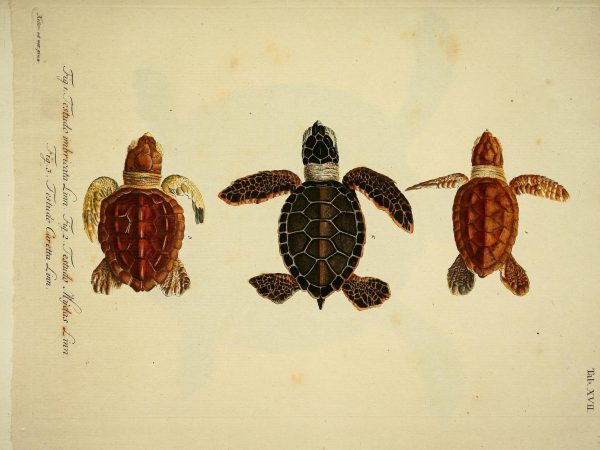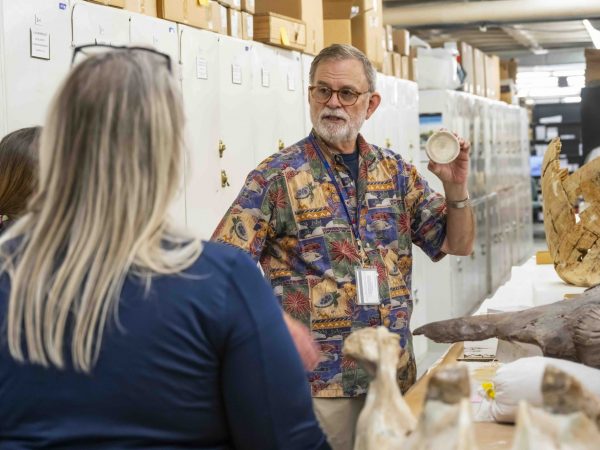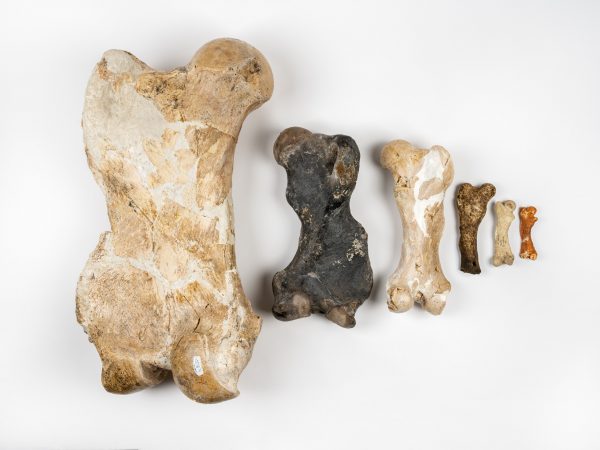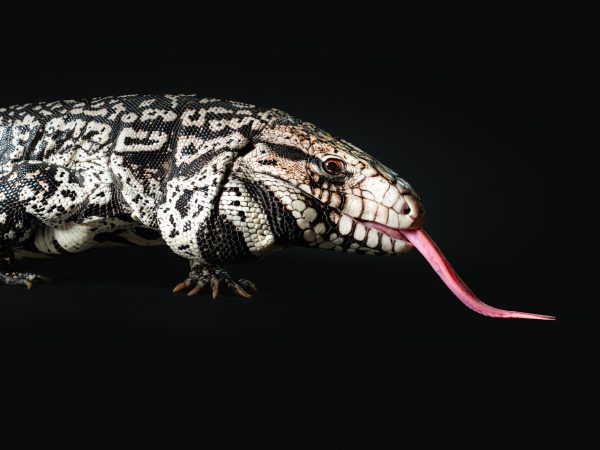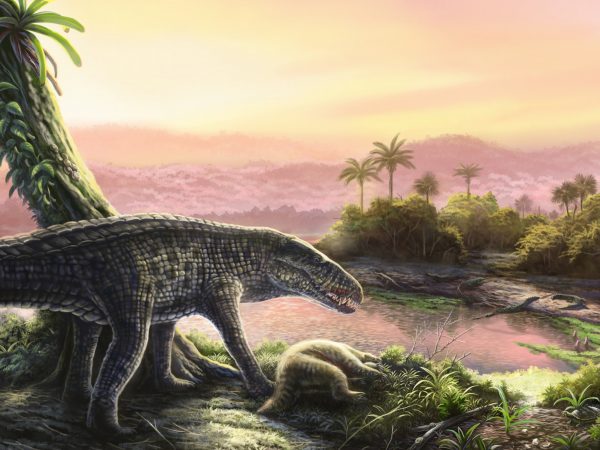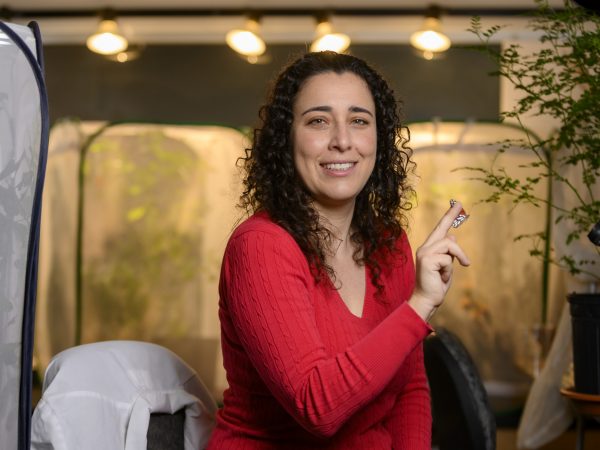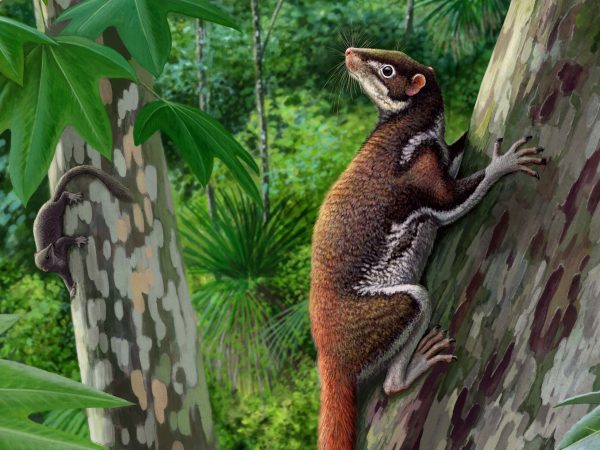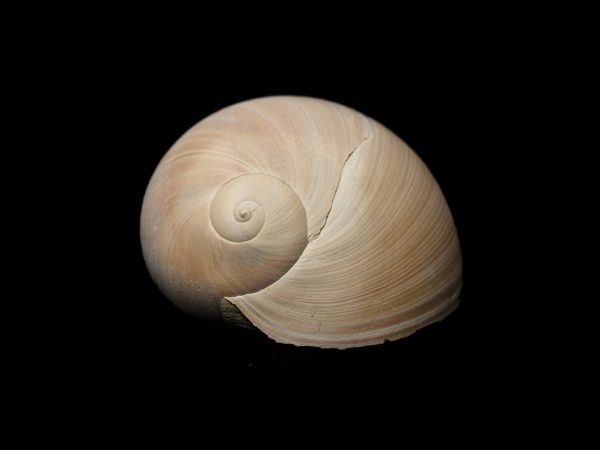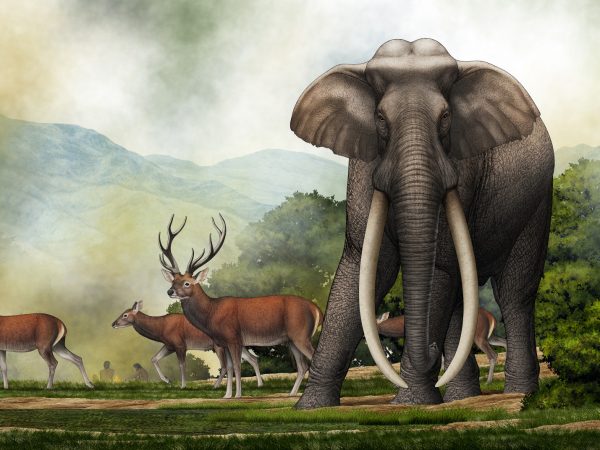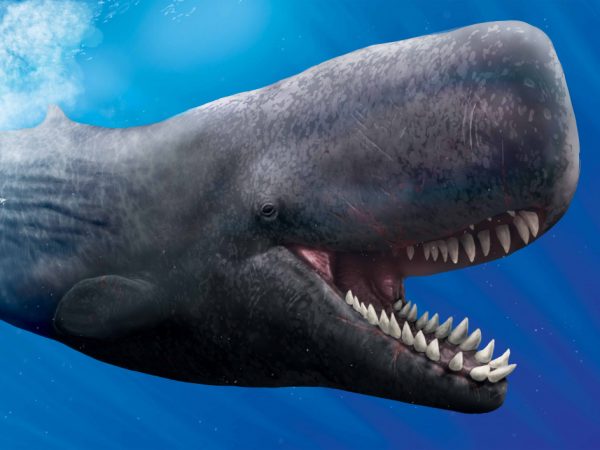From radar to reptiles, scientists trace the evolution of ancient swimmers
Key Points Convergent evolution occurs when completely unrelated groups of animals evolve similar features in response to similar environmental pressures….
Read More
Bruce MacFadden receives the Raymond M. Alf Award for Excellence in Paleontological Research and Education
Bruce MacFadden, distinguished professor emeritus and former curator of vertebrate paleontology at the Florida Museum of Natural History is this…
Read More
Scientists have figured out how extinct giant ground sloths got so big and where it all went wrong
Most of us are familiar with sloths, the bear-like animals that hang from trees, live life in the slow lane,…
Read More
From prehistoric resident to runaway pet: First tegu fossil found in the U.S.
Originally from South America, the charismatic tegu made its way to the United States via the pet trade of the…
Read More
Giant croclike carnivore fossils found in the Caribbean
Imagine a crocodile built like a greyhound — that’s a sebecid. Standing tall, with some species reaching 20 feet in…
Read More
Florida Museum announces 2025 Austin, biodiversity and Bullen award winners
The Florida Museum of Natural History has announced the winners of its annual Austin, biodiversity and Bullen graduate student awards,…
Read More
A 62-million-year-old skeleton sheds light on an enigmatic mammal
For more than 140 years, Mixodectes pungens, a species of small mammal that inhabited western North America in the early…
Read More
Florida Museum fossils go to space
The recent launch of Blue Origin’s New Shepard rocket marked several historic milestones. The 21-year-old crew member Karsen Kitchen set…
Read More
Rare fossils of extinct elephant document the earliest known instance of butchery in India
During the late middle Pleistocene, between 300 and 400 thousand years ago, at least three ancient elephant relatives died near…
Read More
New book brings prehistoric mammals to life
After the extinction of dinosaurs came the age of mammals. A new book brings readers into this world with well-researched…
Read More
